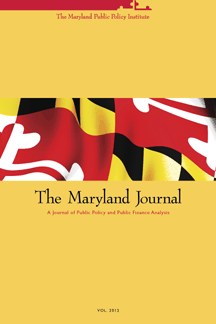1 down, 9,999 to go
Originally Published in the Baltimore Sun
OK, Madame Mayor: Count us in.
You've pledged to increase Baltimore's population by 10,000 households over the next decade. My wife and I have just bought a charming city condo, and we're happy to put you one step closer to your goal.
You should be happy, too, because we're in a key demographic. We're DILKs: dual income, launched kids.
Because Maryland jurisdictions collect piggy-back income taxes on the basis of residential location rather than where wages are earned, our relocation decision carries a nice fiscal dividend. It's not Tom Clancy money — hey, we're both teachers — but every little bit helps, right?
Best of all, we'll consume minimal public services. The kids are out of school and on their own, so don't worry about having to hire more teachers. And we're very law-abiding, so you won't need more cops to protect our neighbors from us. Our condo fee even pays for private trash collection, so no extra expenses there, either. In short, we're a profit center.
And we know quite a few DILKs like us. Some have spoken wistfully of their desire to walk to work each morning. Or to a world-class art museum and sculpture garden for an afternoon. Or to a symphony hall, restaurant or neighborhood saloon in the evening.
Sure, some are also wary of walking past blocks that look like sets from "The Wire." But many DILKs who have worked in the city know it has plenty of safe neighborhoods in which to live and play.
So, what's stopping people? If you take surveys and ask folks why they left or don't want to come back, the first boxes they check off are "high crime" and "poor schools"; "high taxes" usually finishes third. Of course. Public safety and education are the main services local governments provide in exchange for our tax dollars. If these public goods are of low quality, their price had better be equivalently low, or we're out.
To be more precise about it, then, the answer that explains why Baltimore has been losing people for six straight decades isn't on most surveys: "The benefits of city life are far exceeded by its costs."
By all means, Madame Mayor, keep working hard to pump up the benefit side of the equation. Congrats to you and Police Commissioner Frederick Bealefeld on last year's sub-200 homicide count; keep supporting schools CEO Andrés Alonso's efforts to pull the schools out of their tailspin.
But you can't ignore the cost side. It has to make economic sense for people to want to buy city life. Its price has to be within hailing distance of its many benefits. Evidently, it's not: Even as the city operating budget rose 15 percent (over inflation) since 2000, it still managed to lose another 5 percent of its residents.
So, as your challengers in the mayoral race just past said often, that means you have to take on the city's crushing property tax rate, currently more than twice what we DILKs pay in the 'burbs.
But don't just do it to attract our demographic. Sure, we're cash cows, but we're far less important to the city's destiny than the YEPs: young, entrepreneurial professionals.
One of the unfortunate misunderstandings in the property tax debate is that those advocating cuts are selfish people who simply refuse to "pay their fair share." Actually, most DILKs I know are quite generous — but they like to have control over their charitable efforts. Being over-taxed is, to them, inefficient giving.
YEPs have a different problem: They want to start businesses, build them up, and create jobs. When they do so, those businesses increase in value and they get wealthier. But some or all of that value might be consumed by higher assessments on their physical capital (a new restaurant, say, or unique shop, or light manufacturing operation).
In that case, the city's property tax translates into a confiscatory capital gains tax — collected annually. Build that business a few miles away, and you cut that tax in half and make yourself far more competitive in the regional marketplace. No wonder the city's employment base and poverty rate have been going in the wrong direction for so long.
So this issue is crucial to the city's destiny and its ability to become an engine of prosperity. For that reason, Madame Mayor, I promise to keep nagging you about it and keep working for reforms that will make the city economically attractive. Fair warning.






